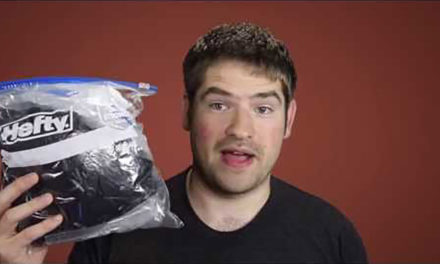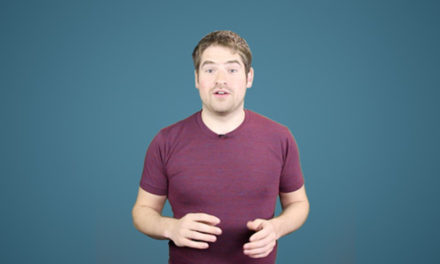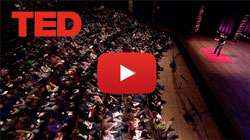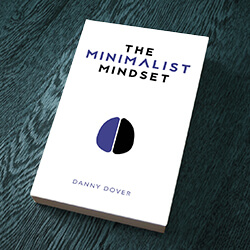After years of experimenting with different life hacks and lifestyle design strategies I have finally identified the best mental exercise.
Change is the only constant in the human condition. Not only do our bodies continually change and get replaced cell by cell but our minds constantly take in new information and update our perspective on the world. This is a healthy process and the engine for growth. As the world changes around us it is vitally important for us to process this change and adapt to the new conditions.
Unfortunately, there is at least one important mental device that retracts from our abilities to adapt, we call these assumptions. Since we have limits on how effectively we can objectively reevaluate every situation that arises at any given moment, we must rely on assumptions in order to simplify an infinitely complex world. If we have seen the same behavior 1,000 times before, it can save us energy to just assume it will happen the same way again.
Human’s take this idea further. Rather than reevaluate every complex moral issue that comes up, we do an analysis, pick a side and use that as our basis for assumptions in future situations. (This can be something simple like believing olives are gross or something complex like thinking all Malaysia Airlines flights are dangerous.) Assumptions can be genuinely useful in the short-term but they are limiting in the long-term.
Is This Really A Bad Thing?
The assumptions we make about life and the way the world works eventually become our worldview. This worldview then affects how we live and exist in the world. It is the lens that we make every decision through. The sum of our small assumptions become the basis for our lives.
It is these assumption driven worldviews that cause humanities greatest conflicts. Racism, xenophobia and the constant struggles in the Middle East are all perpetuated by people who are failing to recalibrate their assumptions. Just because one human was bad doesn’t mean every person that sharing their traits is equally bad. The world continues to change but many people’s assumptions do not.
To combat this mental trap, I rely on the following mental exercise.
The single most fulfilling intellectual exercise that I do is actively recalibrate my long held assumptions. I take a solid belief of mine and actively review it to see if it still holds true for me.
I change with the passage of time and it takes active work to change my assumptions and my resulting worldview. This exercise has resulted in me reversing my belief in free will (I don’t believe in it anymore), strengthening my beliefs on guns (Due to living logistics, I don’t have a gun myself but I believe almost everyone should have access to one) and last week, I drastically changed my views on the morals of eating animals (my new point of view will likely surprise you, stay tuned for my next blog post).
How To Actively Recalibrate Your Assumptions:
1. Make a list of three things you strongly believe or assume. (This doesn’t necessarily have to be your strongest beliefs.)
2. Pick one of those beliefs and identify the counter extreme. (What would the two opposing sides believe?)
3. Define actions you can take towards experiencing and reevaluating the opposing sides of your assumption. (You don’t necessarily need to go to the full extreme.)
4. Perform some of the actions in the last step in order to actively reevaluate your assumption.
A Real Example
1. My 3 strong assumptions are:
1a. Anyone can choose and take action to improve their life.
1b. Bucket lists need to have deadlines.
1c. I hate seafood.
2. The counter extremes of “anyone can choose and take action to improve their life” are:
2a. Anybody can choose to take action to improve their life.
2b. Nobody can choose to take action to actually improve their life.
3. The following are actions I can take toward testing these viewpoints:
3a. Search the web for examples of people who were unable to improve their lives through their actions.
3b. Talk to older family members about how their lives may or may not have changed. Identify if their lives improved.
3c. Research philosophical views on free will and self improvement.
3d. Take an action to try to improve my life.
3e. Research historical success of well known self improvement techniques.
4. In order to recalibrate this assumption, I actually did B, C and D from above. You can read the results these had on my long held assumptions here.
Example Assumptions To Recalibrate:
- The way you do or do not vote
- The people you spend time with
- The people you don’t spend time with
- The way you treat animals
- The products you buy
- The institutes you support
- The services you use
- The way you evaluate your time
- The food you eat
- The food you don’t eat
- The job you work
- The way you budget your money
- The way you budget your time
- The way you feel about weapons
- The way you feel about specific foreign countries
- The way you interact with nature
- Your philosophy on the origins of the universe
- Your philosophy on relationships
- Your philosophy on others
Why Is This The Best Mental Exercise?
While there are many important mental exercises, this is the best mental exercise for two reasons:
- This exercise can have an unmatched impact on how you view the world. By recalibrating your assumptions and your resulting framework of the world, you impact an uncountable amount of smaller decisions in your everyday life. Something simple like realizing that work doesn’t need to be painful can vastly change how you live your life. Even something small like realizing you like certain kinds of seafood can vastly change how you eat and the resulting composition of your body.
- This exercise directly combats the internal problems that are causing some of humanities biggest conflicts. Many of the world’s most senseless acts of violence have been caused by people who applied their untested assumptions to other people’s wellbeing. Strong assumptions lead to strong beliefs which lead to strong actions. This exercise makes sure that those beliefs are warranted.








